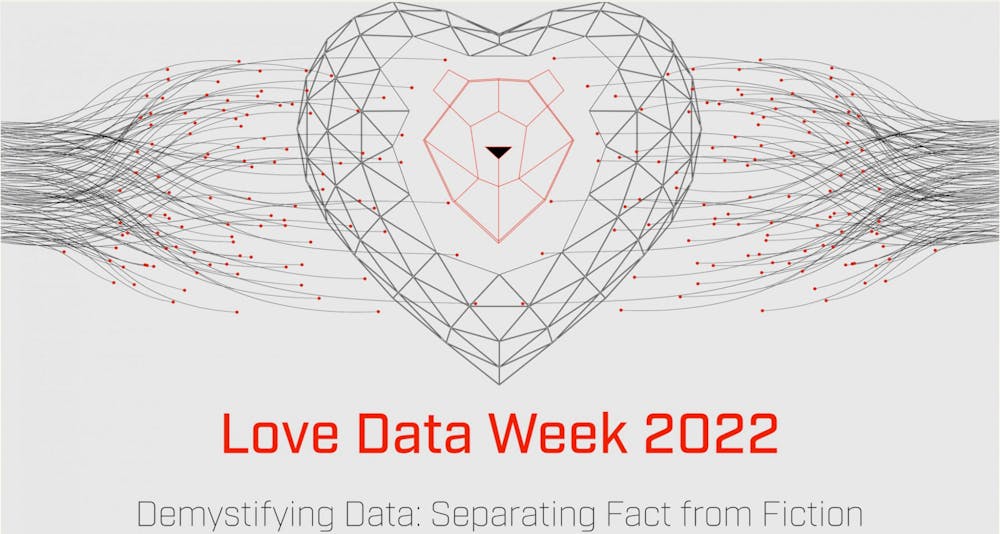Brown’s 2022 Love Data Week took place last week from Feb. 14 to 18. Sponsored by the Office of the Vice President for Research and the University Library, the event, which is part of an annual “international celebration of data,” aims to “raise awareness and build a community to engage on topics related to research data management, sharing, preservation, reuse and library-based research data services,” according to the University’s Love Data Week page.
Love Data Week is a time to “highlight faculty and student research related to data that they want to share with the community” and all of the University’s data services, said Andrew Creamer, the University’s scientific data management specialist.
This year, the theme of International Love Data Week was “data is for everyone.” Brown was one of a handful of schools that chose their own theme — the University’s was “Demystifying Data: Separating Fact from Fiction.”
This theme is a “bit of a continuation from last year on making sure that people understand that not all data is good data, and how to distinguish what is real data from good sources versus not,” said Arielle Nitenson, assistant director of research integrity.
The Love Data Week 2022 Planning Committee chose the theme by brainstorming topics that would be “relevant for what we want our community to know about and what is going on in the world,” Nittenson said. “We also want to find something that is broad enough that we can really have a wide range of speakers that will cater to everyone's interests.”
“We’re trying to connect what we're doing locally to the broader issues facing society around misinformation,” Creamer added, citing the School of Public Health’s work to reduce pandemic misinformation.
This year, Love Data Week took place with a hybrid format to include the social, team-building and collaborative aspects of being in-person, while also offering a remote option for people outside of Brown or for those who aren’t comfortable with meeting in person yet, Nitenson said.
The speakers for the events and workshops are chosen by a mix of the Planning Committee “reaching out to speakers” and people asking the committee to help advertise a data-related event, Nitenson said. “It's a win-win — they get additional advertisements and then we get additional people coming to our website to see our other events,” she said.
One such event was a Feb. 14 remote workshop led by Ashley Champagne, head of the Library’s Center for Digital Scholarship, called “Gathering and Analyzing Twitter Data for Research.”
This event was part of an original set of workshops Champagne developed after noticing that though many “students and faculty wanted to work with Twitter data,” they “didn’t have any experience.”
During the workshop, Champagne taught participants how to use the Twitter API and other resources such as Twint, a Python library, and a Twitter Archiving Google Sheet to gather and analyze Twitter data in real time. Attendees also received a Google Colab notebook, which “offers sample code to gather an initial dataset, so that they can practically try gathering a dataset themselves and working through these questions as part of the process,” Champagne wrote in an email to The Herald.
“Love Data Week provides a unique opportunity to learn about how researchers and project teams across disciplines are working with data. I try to get involved every year,” Champagne wrote.
Another pair of events addressed recent federal data-sharing regulations, a new aspect of Love Data Week, Nitenson said. The earlier event, titled “Preparing for the NIH Data Management and Sharing Policy,” was hosted by Taunton Paine and Cindy Danielson from the National Institutes of Health, and the follow-up event, “Putting Policy into Practice,” was co-sponsored by the COBRE Center for Neuromodulation and the Data and Research Methods Core.
Nitenson emphasized the importance of balancing Love Data Week to include events focused on the sciences, humanities and other fields.
“Data is for everyone and it cuts across all disciplines,” Nitenson said.





